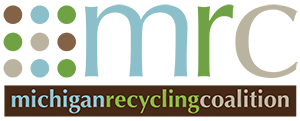On-Farm Composting Rules and Permit Exemptions
Farmers have a vital role to play in producing and utilizing compost to restore depleted soils. Permit exemptions authorize compost operations on farms and smaller-scale facilities, such as community gardens, thus avoiding superfluous permitting requirements intended for larger, full-scale compost facilities. Because there are often significantly less risks or hazards associated with on-farm and small-scale composters, many states have incorporated permit exemptions into their composting regulations for such cases. Local zoning regulations can also be amended in order to facilitate on-site composting.
Compost Helps Local Farm Build Healthy Soils & Feed Their Community (feat. Moon Valley Farm)
Listen to the podcast below
On this episode of the Composting for Community Podcast, ILSR’s Linda Bilsens Brolis and Sophia Hosain speak with Emma Jagoz, owner of Moon Valley Farm in Maryland. They discuss the role compost has played in supporting the growth of their community-supported, first generation farm that is growing certified organic vegetables and herbs for Maryland and Washington, D.C.
Highlights include:
- Details on how Moon Valley Farm’s composting systems and strategies have changed as the farm has grown
- Why composting has remained a priority for the farm over the years and how they have overcome challenges
- How the farm uses compost to build healthy soils, while meeting Maryland Nutrient Management Program requirements
- Observable benefits from using compost in their fields and how the farm integrates compost application along with other soil health practices
- 5 key strategies for creating a resilient farming business and the power of community supported agriculture
- How the access to land, financial support, and sustainable agriculture training programs are critical needs for farmers
This interview is hosted in collaboration with the Million Acre Challenge, of which ILSR is a founding member. The MAC is a collaborative project that is supporting farmers in implementing healthy soils practices and regenerative agriculture on one million acres of farmland in Maryland and the Chesapeake Region by 2030.
Regenerative agriculture practices are rooted in Indigenous knowledge and practices. Read ILSR’s land acknowledgement here.
